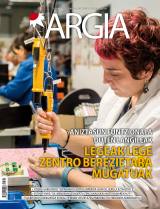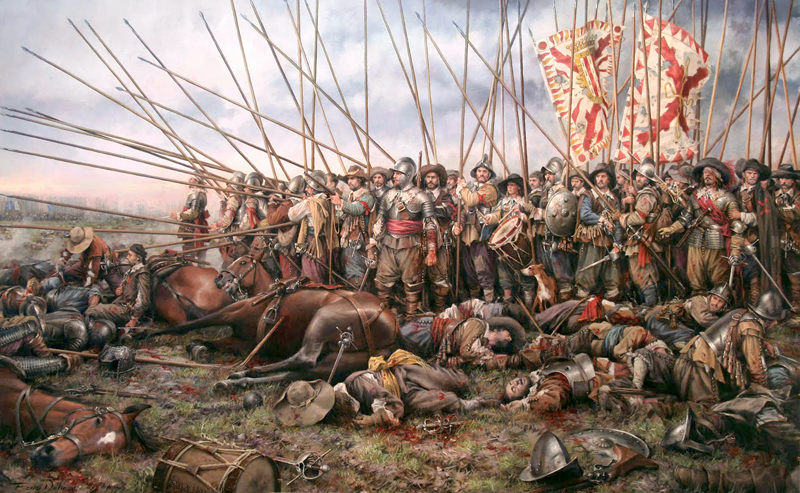The series are written
- The writer's work is in itself an office and a shadow work. The interviews will be conducted by the Director, the actors will complete the screen and red carpets if any, and the writer, like many others, will be in the background, with names and surnames of semi-unknown credits, developing another idea, not knowing if he will see the light. However, not everything is dark, what creates a special impression is that the TV is turned on and what is written or represented by oneself is seen on the screen. However, that is difficult to achieve, and there is nothing to say in this Basque Country that has hardly any audiovisual fiction. We have come to Yurre Ugarte and Iñigo Lezertua to learn more about this work, often hidden.

The writer and screenwriter tolosarra Yurre Ugarte has known very well the times when it was first made fiction at ETB. He has always liked writing, and although he started his journalism studies, due to the lack of specialties in Leioa, he moved to London to study audio-visual. There he began to write and direct his first works. When he came back, he held under his arm the script of a feature film. With this project he addressed Martin Ibarbia, of Orio Produkzioak, who threw a counter-proposal asking him to develop and write an idea for a sitcom. It was her first job as a professional writer. The end of the Penelope Enea (1992), ETB1 and eitb.eus.
Although it was a unique opportunity to learn, the conditions were not the best: “Working conditions were acceptable only by a brave rookie, as I had to write 10 scripts in a month. In this way, the series will inevitably get you out of category B.” Since then he has worked for many other projects, for Goenkale, for animated films, and for televisions such as Tele5, Telemadrid or TV3. Despite all kinds of experiences, he believes that the importance of the writer is often not recognized, although it is very difficult to obtain a good result without giving time to writing and developing the idea. “If you don’t understand that writing a script takes time, you don’t understand what an audiovisual work is. It takes time for pre-production, it takes time for writing. If you want to build an industry, you also have to integrate it into the industrial process and, of course, pay for it. This seems so obvious is not always taken into account.”
How much does an idea cost?
In the ETB series offered in Basque, at least part of the script is usually written in Spanish.
Mutriku writer Iñigo Lezertua knew the secrets of television a decade after Ugarte took over it. He started working at age 22 when he was tested in Pausoka. After going through Euskolegas and Vaya Semanita, he has been working from Madrid for three years on the development of ideas and scripts for different national and international televisions. He says that the writer's work is much more than writing. “You have to do research, look at what is done in other countries, adapt your ideas to what every television wants, and also know how to sell your idea.” All this requires a great deal of work and time, but it adds that, in general, Basque producers do not want to invest in the development of ideas, so it is often a work that needs to be done from home and without guarantees. Then, at best, if the idea is good, they will buy it. “But, given all the work behind it, how much does an idea cost?” asked Lezertua.
He is also the principal creator and screenwriter of the Eskamak kentzen series: “It’s been very enriching, but also difficult: you never have time on TV: it’s always a counterclockwork, you have to make a lot of changes… The TV, or you like it a lot, or you don’t like it. In my case, it’s vocational; I’ve learned and enjoyed each project a lot.”

The importance of being on the move
One and the other is clear that in Basque fiction there is a talent to do good things. But to do so, we must give opportunities and pave the way. Lezertua believes that there are few Basque writers who work at the rhythm of TV, and that it is very difficult for professionals to learn, train… “If you are a cyclist and don’t run long, you won’t have enough rhythm. With television the same thing happens, if you don’t create fiction, it will be harder to keep working with quality.”
Yurre Ugarte:
“If you want fertile creators, you have to plant the orchard, sow it, water it or, in a word, take care of it. You have to give opportunities to work.”
He says that this gap has led many writers to take other career paths: in teaching, in other areas of the audiovisual sector, in hospitality … or to work in other countries. This makes it difficult for these people to return to television when they need it.
Yurre Ugarte, for his part, better explains with the orchard metaphor the consequences of lack of fiction: “If you want writers, fertile creators, you have to plant the vegetable garden, sow it, water it or, in a word, take care of it. It must provide job opportunities and put the right conditions in place. And you'll get strong fruits. Otherwise, hardly. In addition, the exploitation of monocultures or orchard only by economic results means the exhaustion of imaginary fruits”.
The Basque Country, at second level
If we refer to the writing of fiction in ETB, another of the strands to be addressed is that of language. In the series offered in Basque, at least part of the script is usually written in Spanish. Yurre Ugarte is clear about what happens: “The Basque is precisely in the second place in this society, in most cases, for the same reason that remains in the background: in the work chain there are professionals who do not know Euskera, and in the audiovisual, in many cases, in the upper part of the pyramid”. When he was the only screenwriter, Ugarte has written the script in Basque, but during the years he was in Goenkale, for example, it was not like this: “In Goenkale, during the first years I worked, the final script was in Basque. Interviews, after all. Not all other parts of the script: argument, steps, treatments…”. Today, however, it says that it is possible to create professional teams from Euskaldunes, that there is talent and experience.
Lezertua is of the same conviction, although (because the producer was from Madrid) Eskamak also wrote in Spanish. “The final version was in Spanish and then translated. But I felt that something was lost in this process, although the translators did a very good job; the result was not exactly what I wanted.” Once and for all, he wants to speak in Basque.

Will the international community save us?
Iñigo Lezertua:
“We have interesting locations, events, what to count… There are no excuses. People need to get started, create dynamics and develop their own brand.”
We have also put the scriptwriters on the skin of ETB’s top positions, looking for a formula that would ignite the Basque series. Ugarte considers that it is increasingly easier to perform ordered works from the point of view of resources, which, in theory, would require more series and movies. It is therefore annoying that there are so few fictions in ETB: “After all, either we tell the stories we have created, or we tell others, both ours and theirs.” He believes that, even if he says otherwise, there are means to do fiction, and that, given the level of audience that ETB has today, there is everything to gain.
Lezertua, on the other hand, believes that the example of Denmark, a country of five million inhabitants, should be followed by a number of Nordic noire style thriller, such as The Bridge, which are successfully broadcast internationally. “We here have very spectacular and unique places, very close to the capitals, and it’s an ideal place to make recordings. We have interesting locations, events, what to count… There are no excuses. People need to be put in place, to create dynamics and to develop a brand of their own that is also of interest at the international level.”
B. It is one of the television references that marked the adolescence of A. He would like A to be an actor known as B. They both have a gang of friends that doesn't come out of the ordinary, but what differentiates is adolescence. B lived a stranger, participated in a public... [+]
Gertatuko zitzaizuen: leku guztietan sekulakoa balitz bezala iragarri duten pelikula edo telesaila ikusi ondoren, frustrazio pixka batekin, “ez zen hainbesterako” esaten bukatu duzue. Eta azkenaldian inoiz baino gehiagotan gertatzen zaizue. Lasai, ez zaudete seko... [+]






















